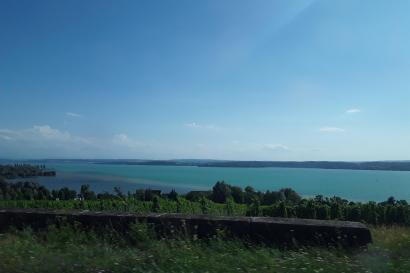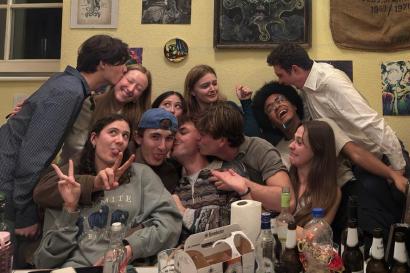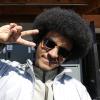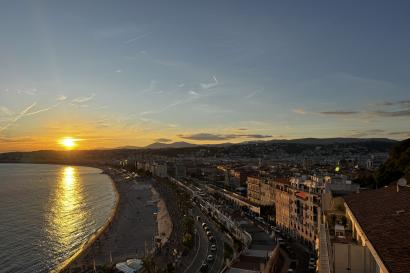The IES Abroad EU crew spent the past week in Berlin and Prague, and it was without a doubt one of the most fascinating trips I have ever been on. I cemented friendships with quite a number of wonderful people, attended lectures on issues within Germany and the Czech Republic, and overall learned a lot through the experience of traveling in a more independent manner than I have before. Both cities had unique stories to tell, but I want to focus on my reactions to Berlin.
Within Berlin, it is impossible to escape history. The city streets almost invite you to ask - what happened here? This question asserted itself from the moment we got off the train and walked to our hostel, located in former East Berlin. Though the city was reunified in 1990, the eastern half is still undergoing construction and feels unfinished, as though it has to catch up to the west. Yet, this primary indicator of a past era only scratches the surface of Berlin’s history.
The city was founded over 800 years ago, and served as a center of political and economic power for the Holy Roman Empire, the Kingdom of Prussia, and the subsequent incarnations of the German State. As government’s rose and fell, the city of Berlin remained a constant and a capital. After the city was devastated during World War II, large portions of this early history were vanquished. Thus, although the visible history of Berlin remains compelling, it mostly represents just a fraction of the city’s existence.
In the face of war and terror, Berlin could very easily have tried to erase its troubled past. However, the city has instead taken steps to keep its history alive. Most notably, the Berlin Wall Memorial features large metal bars that stand where the wall once stood; the divide is remembered, but with spaces left open for people to pass through. The Holocaust Memorial additionally reminds us of a darker time. In the moonlight, the hundreds of stone slabs are eerie and seemingly endless. I took the monument as a space of contemplation; the manner at which I was found myself lost amongst the blocks reminded me of the millions of lost individuals and families, and I reflected upon how fortunate it is that most of my family was able to escape the persecution of the Nazis.
Additionally, although German history may stretch centuries, it lacks the political continuity of countries like the United States. Thus, not only is history preserved, but it is often characterized by distinct eras interwoven side by side. Nowhere is this more present than in the Reichstag, the home of Germany’s parliament, the Bundestag. Within the Reichstag, many original columns still stand, strewn with graffiti scrawled by Russian troops at the the end of World War II. The interior of the building itself was rebuilt during the 1960s in a simple, non-ornate manner to reflect the symbolic yet non-functional nature of the building during the Cold War. Finally, there are modern, almost futuristic-looking glass doors and walkways, reflecting the revitalized Germany of the present. Through their coexistence, these different markers form an architectural tapestry of history.
To briefly touch on Prague - the city was stunning, unlike Berlin in that it had mostly been untouched by the war. However, the beautiful foreground is in many ways a facade for the many problems the country faces. If we hadn’t discussed the political issues of the state in our meetings, it would have been very easy to explore the grandiose castles and cathedrals as an uninformed tourist, and in consequence view the city (and country) as idyllic.
After a long bus ride home, and a very lethargic Sunday spent recovering from travel-exhaustion with way too much Netflix, I am ready to keep exploring Freiburg and start doing actual school work.
See ya,
Zach

Zach Cohen
Hello! My name is Zach and I am so happy you are here! I grew up in Tucson, Arizona, and am currently a Junior at Occidental College, where I am double-majoring in History and International Relations. I'm fascinated by the connections between the past and the present, and the role that history plays in modern diplomacy. Be sure to keep up with my travels as I explore Freiburg and the European Union this semester!









